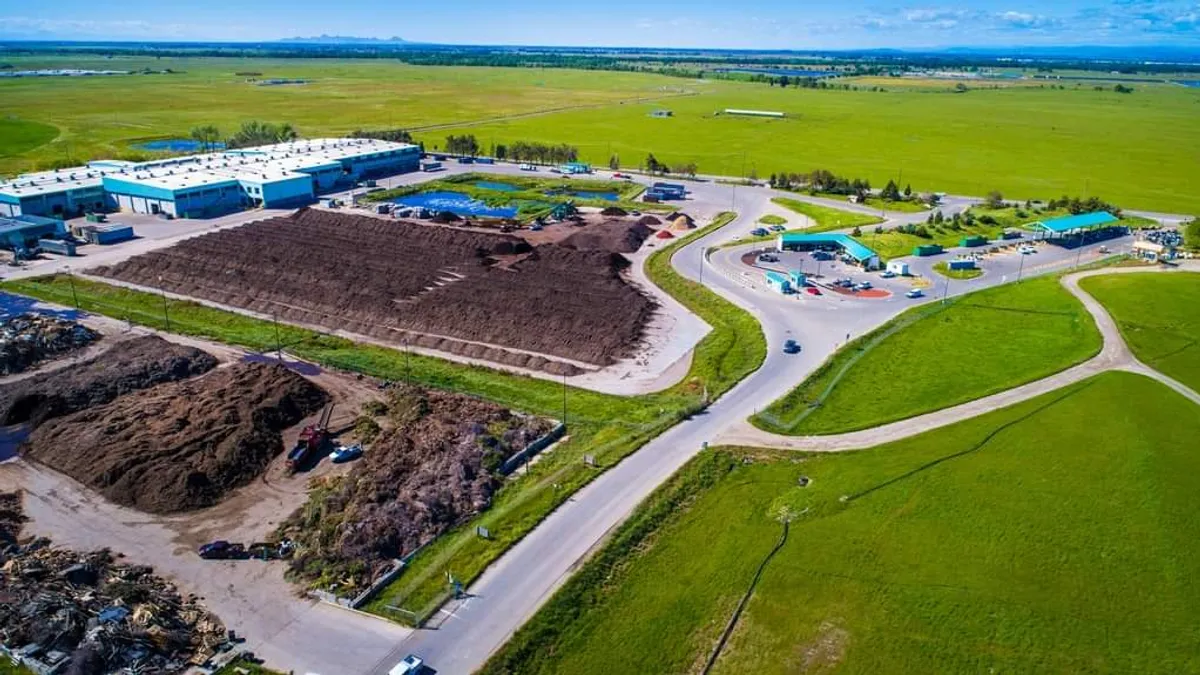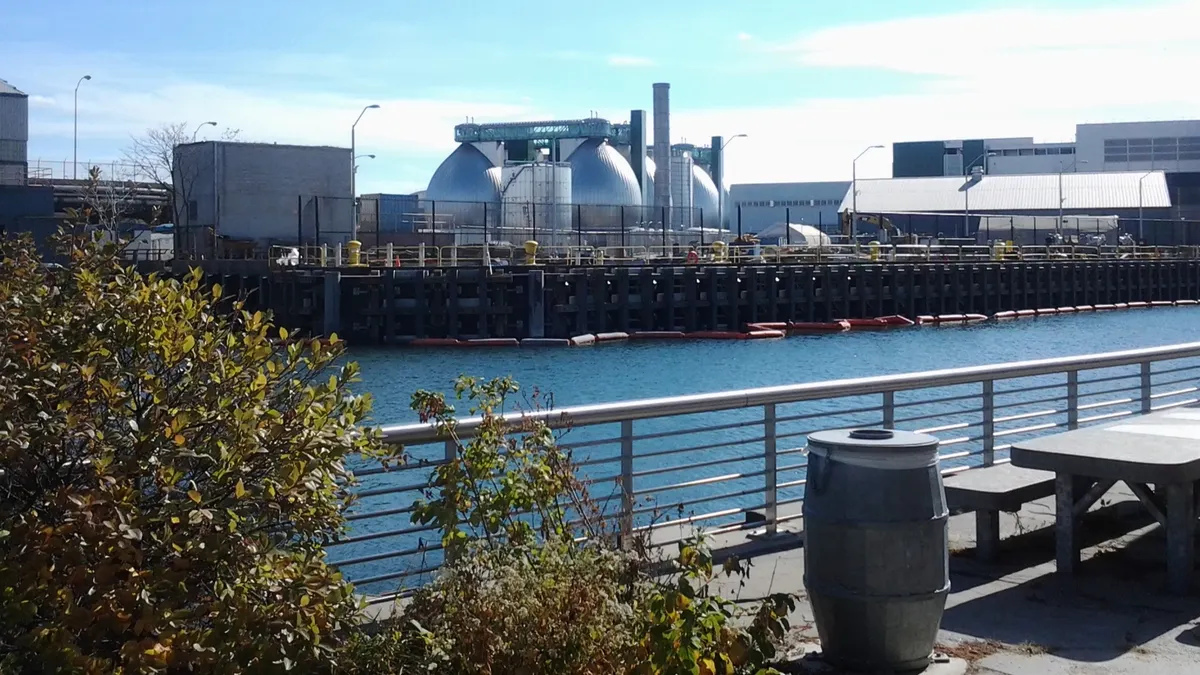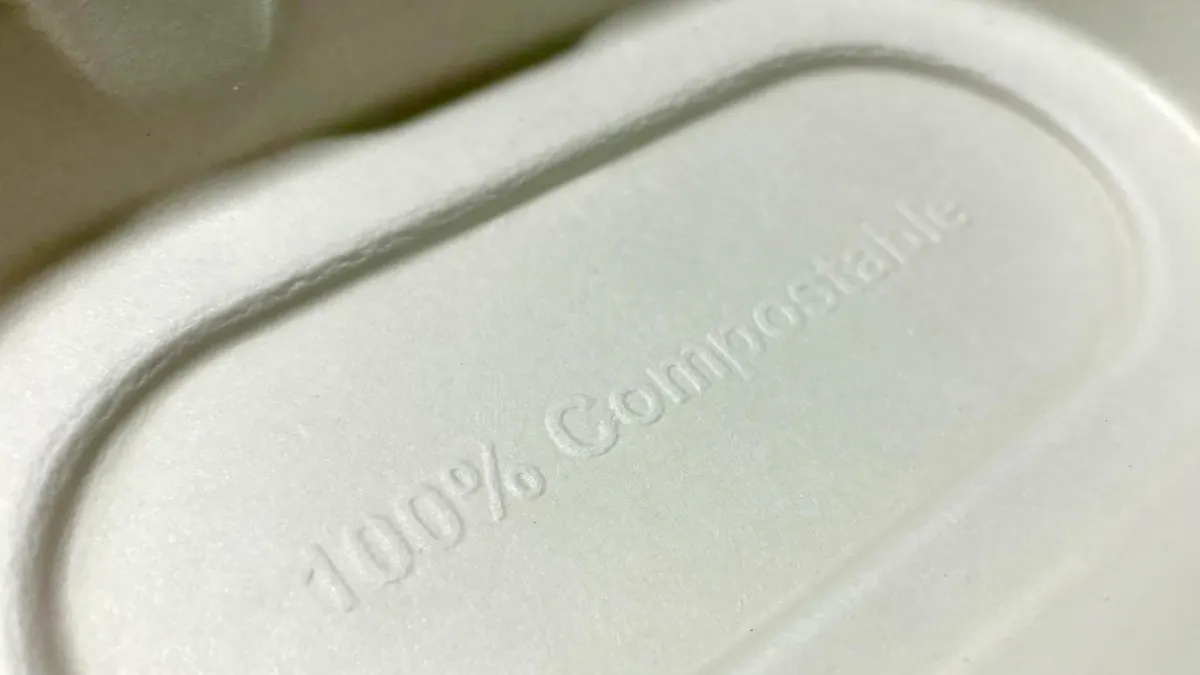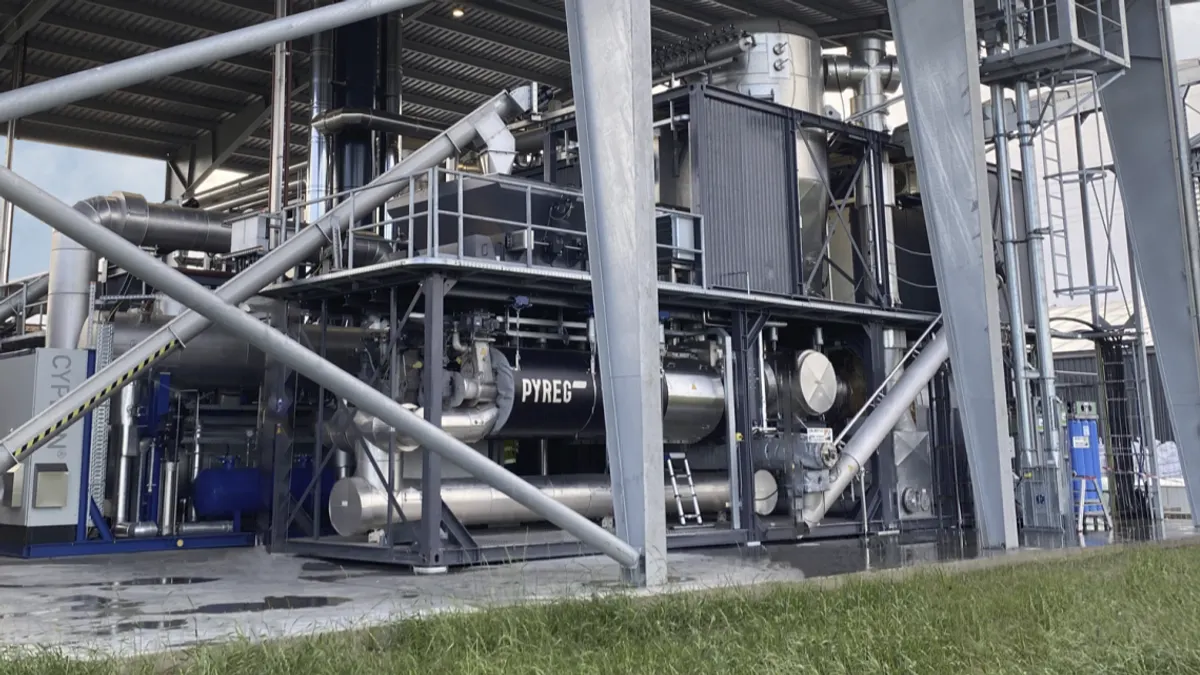UPDATE: April 28, 2022: FCC Environmental was recently awarded a contract with the Western Placer Waste Management Authority that marks the company's entry into California. The initial 10-year contract is valued at $680 million and could be worth up to $1.5 billion when factoring in the potential for two five-year extensions, according to a press release from FCC.
On July 1, FCC will assume responsibility for operating the authority's 320-acre complex, which includes a mixed waste MRF, C&D recycling operations, composting facility and landfill. FCC will also be leading a $141 million update to the complex.
January 5, 2022: As California begins implementation of a landmark universal organics recycling law, the waste authority for one of the state's northern counties has picked a company with European roots and no local facilities to take over its post-collection operations. The move marks a notable market entry for FCC Environmental Services and the end of a long procurement process that involved multiple key players in the state's waste industry.
The Western Placer Waste Management Authority (WPWMA) board recently voted to initiate formal contract negotiations with FCC — the U.S. subsidiary of a European company that operates in more than 30 countries — for the operation of its landfill, composting site, MRF (including an estimated $110.7 million retrofit) and other facilities. The project is geared toward complying with SB 1383, a newly effective state law that will ultimately require jurisdictions to achieve 75% landfill diversion for select organic materials by 2025.
The law has prompted fresh contract negotiations and created financial opportunities for waste and recycling providers throughout the state. While some view WPWMA's setup as an outlier, others see it as a microcosm of the complex debate about the best collection and processing approaches to meet California's SB 1383 targets.
WPWMA's mixed waste operations, which serve unincorporated Placer County and the cities of Lincoln, Rocklin and Roseville, are relatively rare in California. The majority of jurisdictions intend to comply with SB 1383 by operating three-cart, source-separated collection programs, but local governments in Placer County largely collect putrescible waste and recyclables in "one big bin," only handling yard waste separately.
Ratepayer costs were a top factor during the contract process, as the county has kept them relatively low over the years. While one bidder with extensive operations in Northern California, GreenWaste, outscored FCC on experience and facility design, FCC received a higher overall score based on cost, financial qualifications and design presentation. Even after GreenWaste submitted a lower-priced bid — driven in part by greater access to capital it expects from its pending sale to Macquarie Infrastructure Partners — FCC still had the overall advantage on cost between the two companies' combined MRF and landfill bids.
| Annual Facility Cost Estimates | FCC | GreenWaste (revised bid) |
|---|---|---|
| MRF Processing Fees | $24,942,506 | $27,658,229 |
| HHW Facility | $476,487 | $424,700 |
| Annualized Capital Cost* | $9,109,454 | $11,144,358 |
| Landfill Operating Cost | $2,511,231 | $6,663,499 |
| Total Annualized Cost | $37,039,677 | $45,890,786 |
| *based on 15-year time frame |
Speaking at the Nov. 29 meeting where the vote occurred, FCC Vice President of Operations Dan Brazil said "we are focused on making this the most advanced facility in North America."
The company recently reiterated its view of the facility as a launching point for future U.S. opportunities.
"We see this as a strategic contract for our company since we have a lot of experience and knowledge operating more than 30 facilities exactly like this one worldwide. We really believe this award will significantly position us as a major player in these kind of processing facilities," said Brazil via email in late December.
GreenWaste sees it differently. In letters (which WPWMA shared upon request) and at the Nov. 29 meeting, the company repeatedly emphasized that it didn't think FCC's proposal was sufficient to meet the requirements of SB 1383 or broader industry standards. GreenWaste also proposed three mixed-waste processing lines versus FCC's two. It currently operates recycling facilities with single-stream and mixed-waste processing capabilities, as well as yard trimmings and organics composting facilities in Northern California; FCC has multiple U.S. MRFs, though its organics recycling background is in Europe.
Greg Ryan, manager of GreenWaste's local operations and CEO of affiliated Zanker Recycling, said his company was "very disappointed" in the outcome.
"While we understand cost is a key consideration in any contract decision, our cost proposal was in line with current industry rates, as well as the three other unsuccessful bidders, and our demonstrated experience is unmatched. Had the [WPWMA] staff followed through with the third-party technical review that was contracted for with industry experts R3 Consulting, GreenWaste is confident that the operational superiority of our proposal would have resulted in a different outcome," he said via email.
The authority did hire R3 to assist with the procurement process, but according to GreenWaste, the firm wasn't involved in reviewing the final round of design submissions by the two finalists last fall. In a mid-December response, WPWMA Executive Director Ken Grehm said he couldn't speak to the specifics of R3's involvement but noted "they weren’t there to make the decision."
In late December, GreenWaste sent a letter asking the WPWMA board "to reconsider and set aside its decision to negotiate with FCC" and direct R3 to perform a new analysis of the bids "so you can properly evaluate the proposals." Attorneys for the company also sent WPWMA a letter Dec. 29 alleging violations of the state's open meeting law based on how the Nov. 29 vote was conducted and threatening potential legal action. WPWMA did not respond to a recent request for comment about these letters.
Other bidders included Republic Services (for the landfill contract), Mustang Renewable Power Ventures (for the MRF contract) and current operator Nortech Waste, which bid on both contracts. Ecohub, a Texas-based company that was set to partner with Nortech on this deal in 2020, also submitted a response to the RFP that WPWMA said did not meet its requirements.
The fact that Nortech — a Recology-affiliated joint venture that has run the MRF since its inception — didn't make the cut is "a shock to many people, I think, and a shock to us, even," Grehm said last June, after the authority named the two bid finalists.
"They’ve been a great partner for a long time. We are not unhappy with them, but the landscape is changing, and people have to be able to adapt and pivot,” he said.
Nortech is not known to have any other contracts in place once its agreement with WPWMA ends in June. The company declined to comment last May and did not respond to a request for comment more recently.
Evolution of a unique facility
Placer County is just one of the many California jurisdictions looking at how they need to modify their operations to comply with SB 1383, but certain characteristics of the county and its existing waste facilities warrant a closer look.
The area has an estimated population of 405,000, stretching northeast from the Sacramento area toward Lake Tahoe, and was designated as the state's fastest growing county between 2010 and 2020. As that trend continues, overall waste volumes could grow from an estimated 386,000 tons in 2018 to nearly 600,000 tons by 2030. While parts of the county are rural, other areas are seeing increasing levels of housing and commercial development — such as a casino with a large outdoor amphitheater — and some are in increasingly close proximity to WPWMA's operations.
Discussions of when and how to potentially expand the Western Regional Sanitary Landfill, the last active disposal site in the county, come at a time when the state is looking to reduce landfill disposal overall. The MRF currently achieves an estimated diversion rate of around 40% to 45%, but in order to meet SB 1383 standards for mixed waste operations, it will need to reach 50% this year and 75% by 2025. FCC's proposal includes a guaranteed MSW diversion rate of 60% and an expected overall diversion rate of 80%.
This mixed waste approach is far from the norm in California, according to discussions about SB 1383 with industry professionals, but Placer County has a history of taking its own path.
The MRF's origins date back to another landmark state law, AB 939, which required 50% diversion of recyclables by 2000 and sparked a wave of curbside recycling programs in the state. WPWMA took a different approach, teaming up with Nortech — a three-way partnership of the company now known as Recology, along with Wastech and Sexton Resources — to create a mixed waste facility that opened in 1995. An obituary for the late Wayne Trewhitt, who led construction as the CEO of Nortech, touted the facility as "the most successful of its kind in the United States."
The facility later went through a $26 million upgrade, which boosted its recovery capabilities and grew processing capacity to more than 2,000 tons per day. The upgrade was tied in with the awarding of a new operating contract in 2005. Nortech beat out then-newer company GreenWaste for that contract based in large part on its experience. The latter company recently described that result as ironic given the different outcome in this latest contract process.
When it came time to take the facility into its next chapter, without Trewhitt at the helm, Nortech engaged with someone who had a 20-plus-year history designing and installing essential systems at the MRF: Ecohub's founder and CEO, George Gitschel. According to Gitschel, he formally teamed up with Nortech in early 2020, after years of discussions, to pitch a new 20-year contract and operational update.
Nortech and Ecohub worked together on these plans throughout that summer and into the fall, before WPWMA staff and the authority's board chose to put the contract out for open procurement in September 2020. After initially discussing plans to bid together, the two companies parted ways in November of that year for reasons that aren't public due to a nondisclosure agreement.
Recology, which holds one of three votes on Nortech's board and is the primary hauler bringing tonnage into the facility via local franchise operations, declined to comment on any internal discussions and deferred questions to Nortech.
Ecohub decided to submit its own independent bid. Similar to its prior proposals (a Houston contract fight that ended in FCC's favor in 2018 is perhaps the best known example), the general concept it proposed for Placer County included co-locating capabilities for anaerobic digestion, composting, C&D recycling, a paper mill and other elements of a manufacturing campus to create products from mixed waste.
“The only person on the entire planet that has the ideal solution to meet all of this is me,” said Gitschel in May, referring to the requirements of SB 1383. “I have the technology. Put everything in one bin, separate everything, put it all through all these different processes on the back end and turn it into new products, renewable energy and grow food.”
According to Gitschel, his plans entailed a guaranteed diversion rate of at least 80% (and a pledge to approach 100%) and full private financing for at least $800 million to construct the Ecohub campus. He also pledged it would keep current ratepayer costs the same for 20 years, mitigate composting odors and eliminate the need for landfill expansion.
In a February letter, WPWMA designated Ecohub's proposal as a bid protest and declared his entry invalid because it "was not submitted in the form required by the RFP, within the requirements stated by the RFP, and did not contain the information required by the RFP." WPWMA's letter also described claims by Gitschel that the request for proposals was "drafted to exclude Ecohub" as “unsubstantiated.” Gitschel disputes this response, saying his intent was not to file a protest bid and that he encountered technical issues with the submission.
By April, when the WPWMA board selected FCC and GreenWaste as the two finalists, all bidders involved in the MRF's design and operations to date were out of contention.
Both of the finalists proposed continuing the facility's mixed waste capabilities, but the RFP process also left room for source-separated approaches if member municipalities wanted to go that way. Ecohub’s Gitschel maintains the waste industry prefers three-cart collection because of its profitability.
"None of the waste and recycling companies want EcoHub to build its first plant, especially if it's combined with a two-bin or one-bin program. If that were to happen, no city would keep their expensive and inefficient three-bin programs. On top of that, there would be no need for existing landfills or new landfill construction," Gitschel said via email recently. "Residents and businesses are being ripped off for billions per year because of the status quo. It’s time for a change."
Local approaches
As member agencies in Placer County gear up for SB 1383 implementation, mixed waste processing has been a regular point of discussion.
The RFP said it would consider moving to a three-bin system. In June, WPWMA's Grehm said he'd be "surprised even if we go there," but more recently he said it could be an eventuality depending on how initial efforts around SB 1383 work throughout California. In the meantime WPWMA's largest member, the city of Roseville, is actively exploring this move.
The city, which handles its own waste collection service, is ramping up for weekly green waste service this year in case it wants the ability to co-collect food scraps with yard waste. It has also been piloting a three-bin, source-separated system in select areas. Capturing cleaner recyclables to meet market standards was cited as one reason for the changes, along with perceptions about easier SB 1383 compliance for three-bin systems compared with mixed-waste processing.
“96% of the state uses a three-container collection system, and with a three-container collection system, we just have to have the program in place and show how it’s effective,” said Devin Whittington, the city’s solid waste utility manager, in May. While the pilot's first round saw good sorting compliance in certain cases, the city also saw low participation for food scrap recycling. Whittington noted at the time “the public is not that excited about separating organics" and "it's going to be a long learning curve."
Others in the county still prefer the mixed-waste approach. Unincorporated Placer County has many rural and mountainous areas, such as the Lake Tahoe area, with long distances between collection stops in some cases. Two franchise haulers — Recology and Tahoe Truckee Sierra Disposal — serve these customers. The state is offering SB 1383 waivers for certain low-population or high-elevation areas, but they don't apply universally.
“We have to think carefully before implementing a whole separate container system and route that would incur many vehicle miles and greenhouse gas emissions and cost people more,” said Christina Hanson, a senior planner for the county's environmental engineering division, in May. “Our county likes to consider our ratepayers first, what’s cost-effective for them and what makes sense."
Last month, Hanson said the county has since hired more staff, is working to update its franchise agreements and has taken other important steps toward SB 1383 compliance. The recent MRF contract decision is considered a positive move. Hanson foresees her area approaching this issue through a combination of green waste collection in more populated areas, drop-off opportunities and other initiatives.
The city of Lincoln, which handles its own waste collection, only recently finished implementing the requirements of AB 1826, a prior state law mandating organics recycling for certain commercial and multifamily buildings. The city said that its timing aligns well to continue that momentum into SB 1383 efforts. Then-Public Works Director Jim Bermudez (who has since left) said in May the city had concerns about moving to more source separation: "We were really tearing our hair out because we thought we were going to have to go to another can," he said.
Last month, the city reported that the recent contract decisions would allow it to stick with the mixed-waste system and said it was looking forward to working with WPWMA on SB 1383 compliance.
Next steps
WPWMA will finalize its contract with FCC in the coming weeks, working out details such as the agreement length and the handoff of operations from Nortech. The first stages of MRF renovations are expected to begin soon after the parties sign a final contract.
In the years ahead, as Placer County once again takes the less common approach to meeting the goals of a major state waste law, the fate of its efforts may be judged in at least two ways.
First, the potential expansion and possible excavation of certain areas in the local landfill are looming large for some in the community. Grehm said he believes expansion is likely inevitable, but the timing could be delayed depending on the success of organics diversion efforts. An outside consultant recommended one option for expansion in 2019, and WPWMA is currently accepting comments on a draft environmental impact report that includes this possibility.
Second, the quality of food waste composting operations and marketability of the final product will be another key issue. Community groups raised odor concerns during the Nov. 29 meeting, and Grehm recognized that the site's "viability will be determined by our ability to not be a nuisance to our neighbors."
Food waste composting will be the core new piece of WPWMA's plan to meet SB 1383 requirements, as it currently just composts yard waste. The method by which this will occur was another point of contention between FCC and GreenWaste. While the California-based company said its approach was superior to FCC's, the California newcomer said its design proposal was informed by decades of experience meeting similar organics regulations in Europe as well as partnerships with SCS Engineers and Van Dyk Recycling Solutions, "who both have extensive California experience."
While California compost markets could see a boost from the robust procurement requirements that are part of the law, selling compost from a mixed waste stream is generally considered more challenging. Between FCC's low pricing (which Grehm described repeatedly as "aggressive") and its faster plans for turning around a product, the company will be attempting to prove out a different approach. In the relatively short time since it began expanding in the U.S., FCC has gained a reputation in the industry for winning with lower bids than major competitors in Texas, Florida and Nebraska to date.
"We have a very different business model than our competitors. We operate in a lean structure, with lower overheads, and we plan long term for our investors with stable returns, not just looking for short term results," wrote FCC's Brazil.
Like jurisdictions throughout California, WPWMA won't fully know how its SB 1383 compliance plans are panning out for years to come but thinks it has chosen the right path.
"I’m hoping that we’re able to find something that ultimately works for our community that’s cost-effective and environmentally sensitive," said Grehm. "We’re going to be watched, and I hope that people can learn from us — as well as we learn from others — about what the future of this industry is going to be.”
We have updated this story to reflect that GreenWaste sent WPWMA multiple letters in late December requesting a reconsideration of the board's contract decision.


















